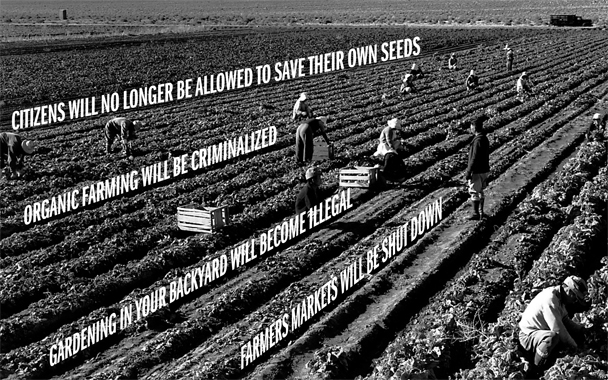Gardening in your backyard will become illegal!
Organic farming will be criminalized!
Farmers markets will be shut down!
Citizens will no longer be allowed to save their own seeds!
That’s just a little sampling of the rants that have been popping up in my inbox and on various bloggers’ sites over the last couple of weeks. The wave of hysteria focuses on a recently introduced piece of federal legislation called HR 875, the Food Safety Modernization Act of 2009.
Can this really be happening?
Fortunately, it appears that the rumors are greatly exaggerated. According to Lori Robertson of politically neutral Factcheck.org, the primary purpose of the bill, introduced in February by Rep. Rosa DeLauro (D-Conn.), is “to establish an agency within the Department of Health and Human Services to be known as the Food Safety Administration.” The FDA would be split in half, with one side monitoring drugs and medical devices and the other monitoring agriculture and food processing. The proposed Food Safety Administration would be granted powers to set standards for “food production facilities,” including farms, but it’s a big leap from there to outlawing gardens.
The furor over the bill has prompted DeLauro to post a “Myths and Facts” pdf on her website that debunks the extreme claims. She stresses that there is no language in the bill that regulates gardens, farmers markets, or organic agriculture.
“Organic farmers have a strong record in providing safe, high-quality foods to American families and I will continue to work toward making sure that organic farming continues to thrive,” the congresswoman told The Cornucopia Institute, an aggressive advocacy group for small organic farmers. “The purpose of this bill is to improve the safety of food products derived from large industrial processing facilities.”
That laudable aim has earned the bill support from Food and Water Watch, the Center for Science in the Public Interest, the Consumers Union, and other consumer groups.
But Will Fantle, Cornucopia’s research director, says that there is still a need for vigilance to make sure that the legislation doesn’t hurt small growers in its attempts to set rules designed for industrial-scale agriculture. “We don’t believe that harming organic and local producers is the intent of [this bill],” he said in a press release. “But we must . . . clearly express our concerns that a ‘one-size-fits-all’ regulatory focus could very well seriously damage some of America’s best growers of wholesome, fresh food.”


